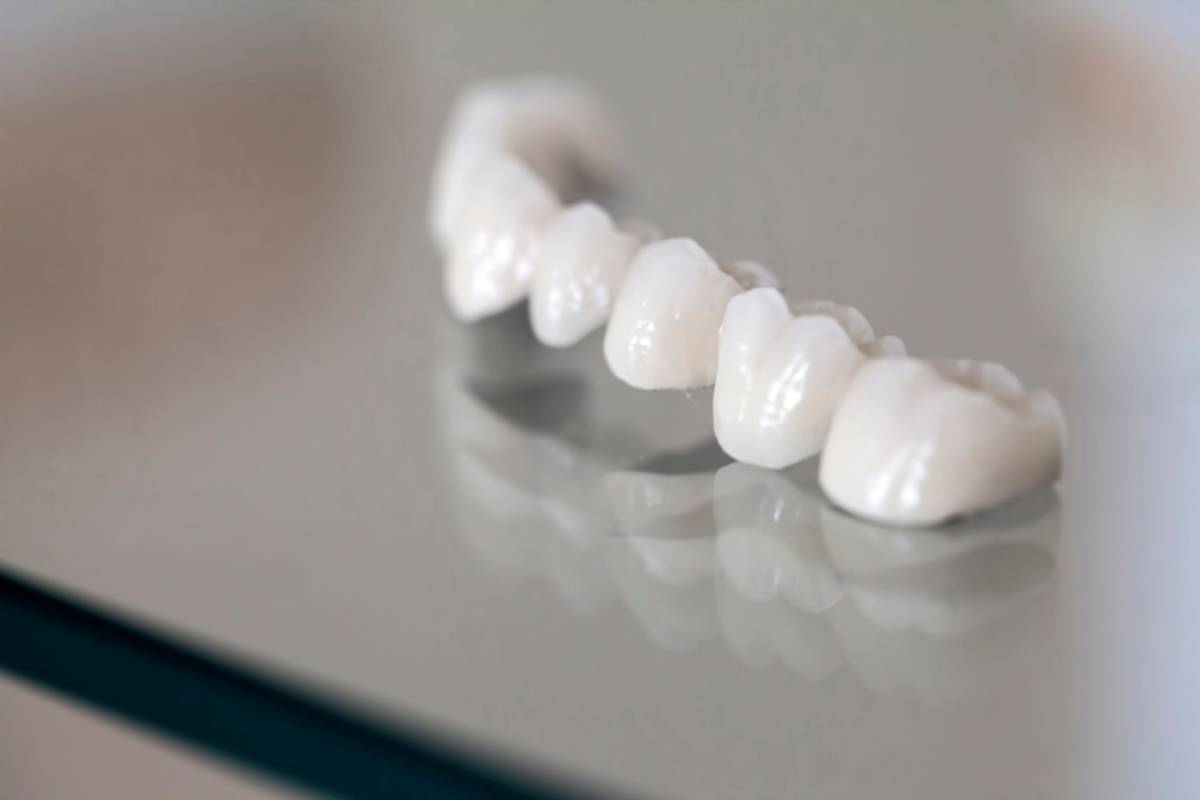A dental bridge is a restoration solution used to replace one or multiple missing teeth in a row. It can help improve the appearance of your smile and self-confidence and make meals more enjoyable. But is a dental bridge permanent? In This article, we talk about the factors that can influence the longevity of your dental bridge.
Is a Dental Bridge Permanent?
A dental bridge is a long-term restoration solution for missing teeth. However, dental bridges are not permanent. Similar to all artificial dental solutions and our natural teeth, dental bridges wear off with time. In general, a dental bridge can last from 5 to 15 years. Several factors can determine the longevity of your dental bridge:
- The material the bridge is made of
- The type of the bridge
- The location of the bridge
- Oral hygiene habits
- Dietary habits
- Lifestyle habits
- Underlying oral health
The Longevity of Different Dental Bridge Materials
The material your bridge is made of is one of the main factors that determine its longevity. Let us look at different materials in more detail:
- Resin composite dental bridges tend to be the least durable option, lasting between 5 and 10 years.
- Ceramic (porcelain) and zirconia dental bridges are a more durable option that can last between 7 and 15 years.
- Porcelain-fused-to-metal bridges provide the natural look of fully porcelain bridges but have additional durability due to the meta base, lasting for up to 20 years.
- Gold and silver bridges are also a durable and long-lasting option, as metal can withstand a lot of force applied by chewing.
Types of Dental Bridges and Their Longevity
There are four main types of dental bridges:
- Traditional bridges use the crowns of the surrounding teeth for support and can last for 5 to 15 years, depending on the material they are made of.
- Cantilever bridges rely on only one tooth for support. This type of bridge can last for 5 to 10 years.
- Maryland bridges are supported by metal frameworks that are attached to the backs of the surrounding teeth instead of their crowns. This solution tends to last not as long as traditional bridges—5 to 7 years.
- Implant-supported bridges rest on a metal post implanted into the jaw bone. It is a secure and reliable solution that can last for up to 20 years.
How Oral Health and Hygiene Habits Influence the Longevity of a Bridge
Since most types of dental bridges rely on the surrounding natural teeth for support, the health of these teeth is a crucial factor for your bridge’s longevity. The objective is to keep your teeth cavity-free and strong.
Additionally, gum disease can develop as a result of insufficient oral hygiene and plaque and tartar buildup, making the gums recess and the teeth less stable. Both these negative consequences of gum disease can also compromise the stability of your dental bridge.
An effective oral care routine should consist of the following steps:
- Brush your teeth twice a day with a fluoride toothpaste that strengthens enamel and helps fight bacteria. Never skip brushing your teeth before bed, even if you are tired, as bacteria in the mouth are most active when we sleep.
- Floss every evening, carefully removing food residue from the bridge area.
- Use a water flosser to make cleaning around the bridge easier and more effective.
- Do not neglect bi-yearly dental appointments for cleanings and checkups. Even if you have an impeccable at-home oral hygiene routine, plaque, and tartar can still accumulate in hard-to-reach areas in the mouth and around your dental bridge.
- Your dental hygienist will be able to effectively remove the plaque plaque and tartar, preventing them from causing cavities and gum disease.
How Dietary and Lifestyle Habits Influence the Longevity of Your Dental Bridge
Even though most dental bridge materials provide excellent durability, they are still not invincible. Eating hard, crunchy, or sticky foods and using your teeth as tools can lead to your dental bridge chipping, cracking, or breaking. Additionally, staining foods and drinks, such as red wine, black tea, coffee, beetroot, berries, and soda, can lead to your bridge losing its original appearance and becoming stained.
Playing sports, especially contact or extreme sports, can also lead to your bridge breaking if you sustain an oral trauma. Thus, we recommend always wearing a mouth guard when engaging in such activities.
Get a High-Quality Dental Bridge in TruGlo Modern Dental
Do not hesitate to make an appointment with an experienced dentist at TruGlo Modern Dental today. We use modern diagnostic methods and high-quality materials to provide our patients with long-lasting dental bridges. We are looking forward to your visit.
